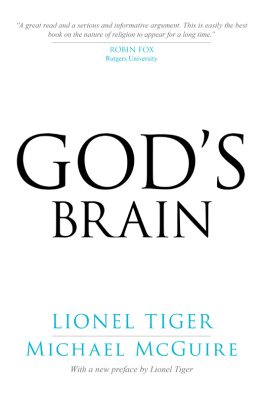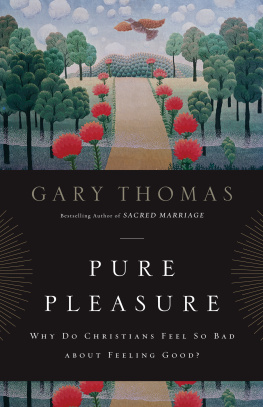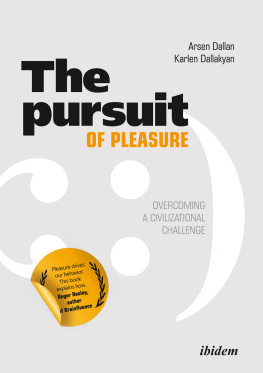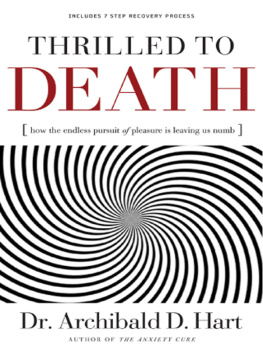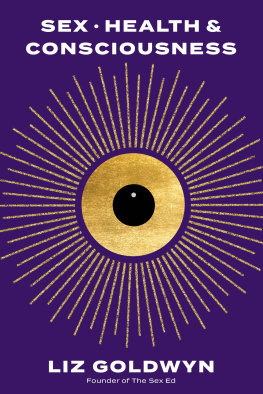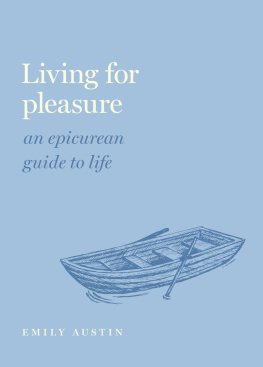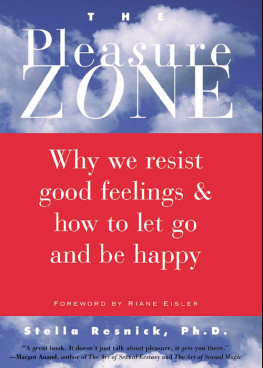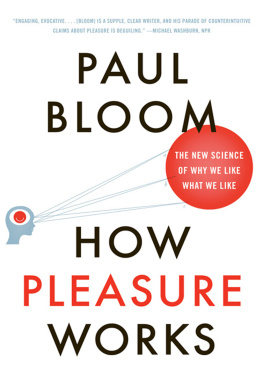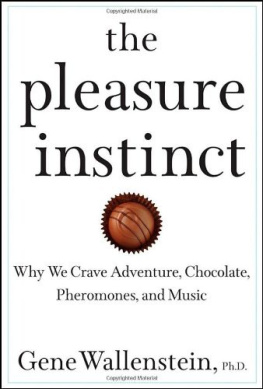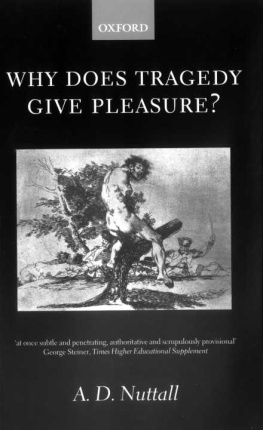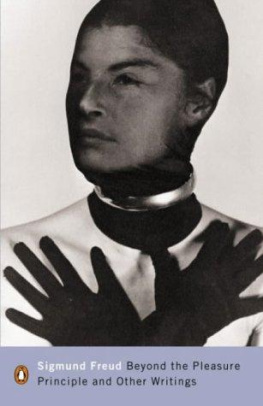HOW COULD ANYONE object to the notion that pleasure is biologically desirable and good for physical and mental health and that the motive and machinery for it has been programmed into our being by evolution? Youd be surprised. I was.
People object for a variety of reasons. The most complex, formal and significant one derives from religious convictions that the most morally admirable human life is marked by abstemiousness, suffering and even martyrdom. There is a corresponding fear that if people pursue pleasure too avidly and with too strong a sense of entitlement, the worlds work will not get done. At worst, moral decline will precede the overall disassembly of civil society. But just as there is a suspicious and supervisory sense of the dangers of pleasure, there have also been its supporters who asserted its vital and joyful centrality to human experience at its best.
Many discussions of this matter have taken religious or moral forms. But these, almost by definition, focus on advocating one position or another. They can easily turn tiresome and hectoring. They will almost certainly fail to provide that sense of intellectual surprise and discovery which good science generates. In the book that follows, I sought largely to avoid moral assertiveness in favor of an agnostic approach from natural science. The principal natural science, biology, seemed especially appropriate as a base of operation. A main reason was that Charles Darwin, its presiding strategist, realized that the pursuit of sexual activitysexual selectioneffectively determined the character of speciesnatural selection. Sexual activity is, if nothing else, immersed in a cascade of pleasure. And it is so pleasurable that virtually all societies expend considerable effort to restrict or channel it. Of course, until very recently, the absence of effective contraception has meant that the pursuit of sexual pleasure could, in a flash, lead to the conception of another human being with all the immensity that implies. So as the most consequential of pleasures, it is understandable that it generates the most consequential of controls.
There have long been efforts to use biology to explain human social behavior. It has zigzagged from bleak rouged pageants of tooth and claw to sunny charming statements about the intrinsically benign power of nature if left to flourish uncorrupted by forms of evil fomented by bad people. This polarity set Hobbes against Rousseau, Darwin against the clergy, the proponents of industry against environmentalists, bohemians dressed in bold colors against abstemious folk dressed in gray. The conversation has almost invariably been heated, often bitter. Some spectators of man-in-nature perceived the deadly sins, including organized lethal aggression, as intrinsic to the human condition. They have been charged with justifying and, in a manner, almost supporting the regularities in human society they observe. On the other side, those who revel in human kindness, conviviality, reciprocity, and other forms of obvious goodness have been called naive or impractical or sentimental or untrustworthy in practice or all of the above. Nevertheless, there is surely reason to assume that an analysis of a situation need be neither a form of advocacy or denial of the situation itself. And if in fact we are dealing with nature and human nature, then that nature remains an irreducible basis for any choices of social action that people choose to make. If nothing else, in order to change a system, it is best if not essential to understand it first. Even to maintain it without change, knowledge of its innards is obviously helpful. The history of failed Utopias and boldly hapless managerial adventures is a catalogue of the consequences of mistaken assumptions about human nature and natural behavior.
In the book that follows, I explore this general but nevertheless isolable issue of human nature by focusing on the origins and forms of pleasure. Medical science has paid appropriately intensive attention to pain. It has perfected a host of often astonishingly impressive methods for preventing, alleviating, or recovering from it. But pains opposite, pleasure, has not had such a well-funded and fully justified constituency. In fact, those committed to its understanding and pursuit such as recreation directors, entertainers, and tourists are rarely accorded the same respect and sense of significance as those involved with combating suffering. In general, people who produce resources are accorded rather higher moral standing than those consuming them. Just consider the different moral status of playboy in contrast to workman. This is so notwithstanding the enormous practical importance of the pleasure trades, such as tourism, which is among the two or three most prosperous industries on the planet.
Events of the years since the book was published in 1992 have not substantially changed this picture, which is interesting in itself. For example, in the industrial world and especially in North America, this has been a period of utterly remarkable prosperity, both in fact and in relation to known history. More people have more resources and security. In the USA, more than two-thirds of families, single people, or cohabiting groups do not rent, but own their own dwelling or are at least paying mortgages which generate equity. Yet the hours they spend at work, in the United States anyway, have not decreased. With the intrusion of faxes, email, cell phones, and the like, private life has contracted while free time becomes an ever-more elusive luxury. No doubt this is in part because jobs have become less tedious, more fun, and more productive. Greater care for occupational safety as well as mechanization and computerization of tasks has made work less disagreeable and even more interesting. No doubt, the huge expansion of employment of women in the professional labor force has added major complexity to the task of securing convivial leisure time in familiesin the USA, in some 45% of families one or more partners does not work the standard 9-5, five-day week even though this remains the stereotype of normal employment.


